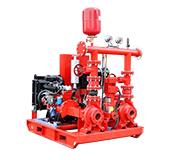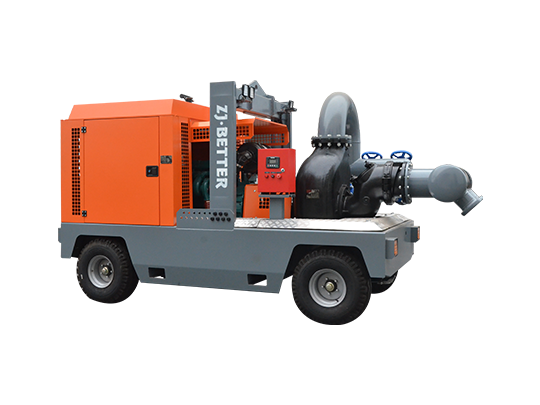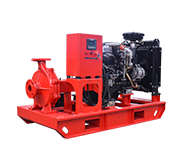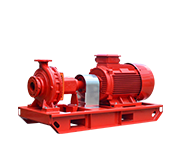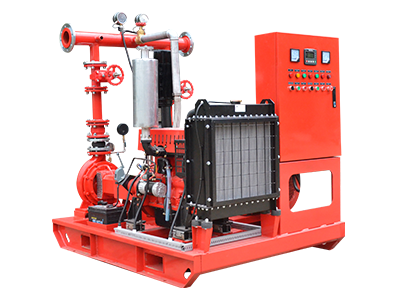- Fire Pump System
-
- UL-Listed Fire Pump SetEDJ End Suction Fire Pump SetEDJ Fire Pump SetEJ Small Flow Fire Pump SetFire Pump PackagesContainerized fire pump setDiesel Fire Pump SetED Small fire pump setElectric Jockey Fire Pump SetFire Pump Set with Jockey PumpFire Pump SystemSplit Case Fire Pump SetMutistage EDJ Fire Pump SetDiesel Fire Pump Set with Jockey PumpFire Fighting Pump SystemElectric Diesel Jockey Fire Pump SetFire Fighting Pump Set with Jockey PumpSmall Capacity Electric Fire Pump SetDJ Fire Pump Set with Jockey PumpEJ Fire Pump SetED Fire Pump Set (Electric+Diesel pump)Diesel Engine Fire Pump SetDiesel Fire Jockey PumpSmall Fire Pump SetEDJ Fire Pump SystemFire Water Pump SetFire Pump AssemblyDJ Small Flow Fire Pump SetCummins Engine Fire Pump Set
- Mobile Pump Unit
-
- Split Case Series Mobile Pump TruckSelf Priming Series Mobile Pump TruckCentrifugal diesel driven dewatering pumps open frame trailerFlow-mixing Mobile Pump TruckFlow-mixing Mobile Pump TruckManure Pump TruckP12 modle mobile Pump truckP10 Modle Mobile Pump Truck1000m³Self Priming Series Mobile Pump TruckLarge Flow Non-Clogging Mobile Fire Pump TrailerTrailer Mounted Fire PumpFire Emergency Mobile Pump TruckDiesel Engine Emergency Mobile Trailer Pump
- Diesel Fire Pump
-
- UL Listed Diesel End Suction Fire PumpXBC-S Diesel Split Case Fire PumpXBC-IS Diesel End Suction Fire PumpXBC-D Diesel Multistage Fire PumpVertical Turbine Diesel Engine Fire PumpDiesel Engine Single-Stage Centrifugal PumpXBC-IS Diesel End Suction Fire Fighting PumpXBC-S Diesel Engine Split Case Fire PumpDiesel Engine End Suction Fire PumpXBC-IS Diesel End Suction Fire PumpsZWC Diesel Engine Self Priming Pump for IrrigationDiesel Engine End Suction Fire Fighting PumpXBC-S Heat Exchange Diesel End Suction Fire PumpXBC-XA Diesel Engine End Suction Fire PumpXBC-IS Diesel Engine Fire PumpDiesel Engine End Suction Fire PumpXBC-IS Diesel Engine End Suction Fire PumpXBC-ISO Diesel Fire Fighting PumpPortable Fire PumpFire Booster Pump

Email: zjbetter@119pump.com
Tel:+86 15336708022(Gloria) +86 13306708055 (Ivy) +86 13357006058 (Serena) +86 13357022877 (Wendy) +86 17757009882(Kate)
Fax:0086-570-3010238
-
7 Factors to Consider When Designing a Fire Pump Room
Discuss essential design considerations like ventilation (to prevent overheating), accessibility for maintenance, layout for optimal flow and pressure, and fireproofing requirements. Explain NFPA guidelines for minimum clearances and emergency exits, especially in high-hazard zones. Also, touch on noise reduction strategies if the pump room is near occupied spaces.
View more +
-
Fire Pump Package Set vs. Assembled Fire Pump Systems: Which is Right for You?
Pre-packaged systems save time and offer plug-and-play convenience, making them ideal for standard buildings or time-sensitive projects. Custom-assembled systems provide flexibility for unique configurations and site-specific needs. Compare installation, maintenance ease, scalability, and the ability to accommodate future upgrades. Include an example of a large commercial facility needing a custom system for unique spatial and performance demands.
View more +
-
Do Fire Pumps Require Surge Tanks?
Explain how surge tanks stabilize water pressure and protect systems from pressure spikes. Describe the function of a surge tank in a high-rise building or industrial site where pressure surges are common. Outline the benefits, including prolonged pump life, reduced maintenance, and enhanced system performance, while touching on instances where alternative pressure control devices might be preferred.
View more +
-
Are Diesel Fire Pumps Suitable for Hazardous Waste Facilities?
Diesel pumps are highly reliable in critical situations, particularly where power sources may be compromised. Discuss specific regulatory requirements for hazardous waste sites and the protective measures needed, like explosion-proof enclosures, to safely use diesel pumps in these settings. Highlight alternatives, like electric pumps with backup generators, and emphasize the importance of safety checks and regular maintenance.
View more +
-
How to Determine the Right Fire Pump System for Your Risk Level
Start by defining fire hazard classifications (light, ordinary, and extra hazard) and how each impacts fire pump selection. Discuss NFPA 20 standards and other regulations that guide pump sizing and pressure requirements. Consider factors like building size, contents, potential fuel sources, and occupancy. Offer examples: a high-rise office building vs. a warehouse storing flammable materials, highlighting the need for different pump capacities and configurations.
View more +
-
How to Determine the Best Fire Pump for Your Facility's Needs?
Assess the facility’s size, layout, and potential fire hazards to determine required flow and pressure. Consider the water supply available, pump type (electric, diesel), and specific applications. Consulting with a fire protection engineer can also help ensure compliance with local regulations and standards.
View more +
-
Why Is it Important to Keep Fire Pump Maintenance Records?
Maintenance records provide a clear history of inspections, repairs, and performance, which is vital for compliance with safety regulations and insurance requirements. They help identify patterns in issues and ensure that the fire pump is always ready for emergency use.
View more +
-
Which Fire Pumps Are Best for Research Laboratories?
For research laboratories, quiet operation, reliability, and precise pressure control are essential. Electric fire pumps are often suitable, given their steady power flow and lower emissions, which may be critical for sensitive environments. Jockey pumps can also maintain pressure without large pumps constantly running.
View more +
-
Everything You Need to Know About Fire Pump Electrical Systems
Electrical systems for fire pumps include the power source (usually a dedicated circuit), control panels, and backup systems like generators. These components ensure reliable start-up, monitoring, and operation under emergency conditions. Key elements include overload protection, emergency stops, and regular testing.
View more +
-
Fire Pump Package Set vs. Integrated Fire Systems: Which is More Effective?
A fire pump package set is often quicker to install and is ideal for specific applications, while an integrated fire system can offer more comprehensive fire protection. The best option depends on your facility’s specific requirements, layout, and risk factors.
View more +
-
Do Fire Pumps Come with Safety Shutoff Features?
Yes, modern fire pumps typically come with safety shutoff features to prevent damage from overheating, low oil pressure (for diesel pumps), or running dry. These features are designed to protect the equipment and prolong its life, though in critical applications, it’s vital that shutoff mechanisms do not compromise firefighting capabilities.
View more +
-
Are Diesel Fire Pumps More Effective for Heavy-Duty Applications?
Diesel fire pumps are often preferred in heavy-duty applications, especially where electric power may be unreliable or insufficient. They offer high power output and are self-contained, meaning they don't rely on the electrical grid, making them ideal for settings requiring powerful, consistent water flow during fire emergencies.
View more +
-
Which Fire Pumps Are Best for Research Laboratories?
Research labs often require precise flow control and reliability, so pumps with variable speed drives or those specifically designed for laboratory applications are ideal.
View more +
-
Why Is it Important to Keep Fire Pump Maintenance Records?
Maintenance records help ensure compliance with safety regulations, provide a history for troubleshooting, and can be vital during inspections or audits.
View more +
-
Are Electric Fire Pumps Easier to Install Than Diesel Pumps?
Generally, electric fire pumps are easier to install because they require less space and fewer components (like fuel storage). They also don’t need extensive exhaust systems, making installation simpler in many cases.
View more +
-
What Are the Common Causes of Fire Pump Motor Failures?
Common Causes of Fire Pump Motor Failures: Electrical Issues: Faulty wiring or power supply problems can lead to motor failure. Overheating: Insufficient cooling or blocked ventilation can cause overheating. Mechanical Failure: Worn bearings or misalignment can result in motor damage. Lack of Maintenance: Neglecting routine maintenance can lead to premature failures. Corrosion: Exposure to moisture and chemicals can damage components.
View more +
-
Why is Pressure Testing Critical for Fire Pump Safety?
Pressure testing is crucial for fire pump safety because it ensures: Proper Functionality: Tests confirm that the pump operates at the required pressure and can deliver water effectively during a fire. Compliance with Standards: Regular pressure tests ensure that the pump meets NFPA 20 and other relevant safety standards. Early Detection of Issues: Pressure testing identifies leaks, system weaknesses, or malfunctions before they escalate into serious safety risks. Performance Verification: Testing under varying conditions ensures that the pump will perform optimally under actual emergency situations. System Integrity: Pressure tests validate that all connections, valves, and fittings are secure and can withstand operational demands.
View more +
-
Can Fire Pumps Operate on Alternative Fuel Sources?
Yes, fire pumps can operate on alternative fuel sources, though traditional fuels like diesel and electricity are most common. Potential alternative fuel options include: Natural Gas: Fire pumps can be designed to run on natural gas, offering cleaner emissions and cost benefits in some regions. Propane: Similar to natural gas, propane can be used as an alternative fuel, though it requires specialized equipment. Hydrogen: While less common, hydrogen-powered engines are being explored for various applications, including fire pumps, due to their zero emissions. Biofuels: Diesel fire pumps may be adapted to use biofuels, which are renewable and can reduce the environmental impact of running the pump. Solar-Powered Systems: Although uncommon, hybrid systems that use solar power to charge
View more +
-
Which Fire Pump Technologies Are Most Reliable for Industrial Use?
Centrifugal Fire Pumps: The most common in industrial use, centrifugal pumps are known for their reliability, performance consistency, and ease of maintenance. Horizontal Split-Case Pumps: These pumps are highly reliable due to their durability and ability to handle high-capacity operations. They are common in large-scale industrial settings. Vertical Turbine Pumps: Known for their ability to draw water from underground sources, vertical turbine pumps are robust and efficient for industrial use. End Suction Pumps: Compact and easy to maintain, these are ideal for smaller industrial applications where space and budget constraints apply. Multistage Fire Pumps: For high-pressure needs, multistage pumps offer reliability by delivering consistent pressure and flow for extended durations.
View more +
-
7 Ways to Improve Fire Pump Fuel Efficiency
Regular Maintenance: Schedule routine inspections to ensure that components are clean and operating at peak performance, minimizing unnecessary fuel consumption. Use High-Efficiency Pumps: Opt for fire pumps with energy-efficient motors and components to reduce fuel usage during operations. Optimize Sizing: Ensure that the fire pump is appropriately sized for its application. Oversized pumps waste fuel, while undersized ones may struggle to perform efficiently. Upgrade to Modern Engines: Newer diesel engines often feature improved fuel efficiency and emissions standards, reducing overall fuel consumption. Variable Speed Drives (VFDs): Implement VFDs to adjust pump speed based on demand, avoiding excessive fuel consumption during low-flow periods. Heat Recovery Systems: Some systems ca
View more +
-
Are There Fire Pumps Designed for Corrosive Environments?
Yes, fire pumps designed for corrosive environments are available. Common adaptations include: Material Selection: Pumps made of corrosion-resistant materials such as stainless steel, bronze, or specialized coatings like epoxy or Teflon are suitable for harsh environments (e.g., marine or industrial). Sealing Options: Pumps in corrosive settings may come with enhanced sealing options like mechanical seals made of corrosion-resistant materials. Enclosures: NEMA 4X or similar enclosures are often used for electrical components to protect against corrosive atmospheres. These pumps are typically used in industrial facilities, chemical plants, marine environments, or areas exposed to saltwater.
View more +
-
What Are the Best Practices for Fire Pump Motor Maintenance?
Proper maintenance of fire pump motors is crucial to ensure reliability. Here are the best practices: Regular Inspection: Conduct periodic visual inspections to check for signs of wear, corrosion, and misalignment. Lubrication: Lubricate motor bearings as per the manufacturer’s recommendations to prevent excessive wear. Test Run: Perform regular test runs, ideally on a weekly or monthly basis, to check the motor's performance and identify any potential issues early. Check Electrical Connections: Ensure all electrical connections are secure and free from corrosion or oxidation. Temperature Monitoring: Monitor the motor’s operating temperature; overheating can be a sign of electrical or mechanical issues. Vibration Analysis: Regularly check for abnormal vibrations, which can indicat
View more +
-
Why Is a Jockey Pump Important in Large Fire Pump Systems?
Jockey pumps maintain system pressure and prevent unnecessary activation of the main fire pump due to minor pressure drops caused by small leaks or thermal expansion. They help reduce wear and tear on the main fire pumps and avoid frequent startups, which are inefficient and can cause excessive pump wear.
View more +
-
Which Fire Pumps Are Suitable for Airports and Aviation Facilities?
For airports and aviation facilities, fire pumps must meet high reliability and performance standards due to the large spaces and high-risk environments. Both diesel engine fire pumps and electric fire pumps are used, often UL listed and NFPA 20 compliant. They may be part of a large, distributed system with jockey pumps for pressure maintenance. Diesel pumps are preferred for backup or as the primary source when electricity supply reliability is an issue.
View more +
-
Everything You Need to Know About Fire Pump Casing Materials
Fire pump casings are commonly made of materials such as cast iron, ductile iron, bronze, or stainless steel. The choice of material depends on factors like: Corrosion resistance: Stainless steel and bronze are often preferred in corrosive environments. Pressure and temperature handling: Ductile iron offers excellent strength under high pressure. Cost: Cast iron is more affordable but less resistant to corrosion
View more +

